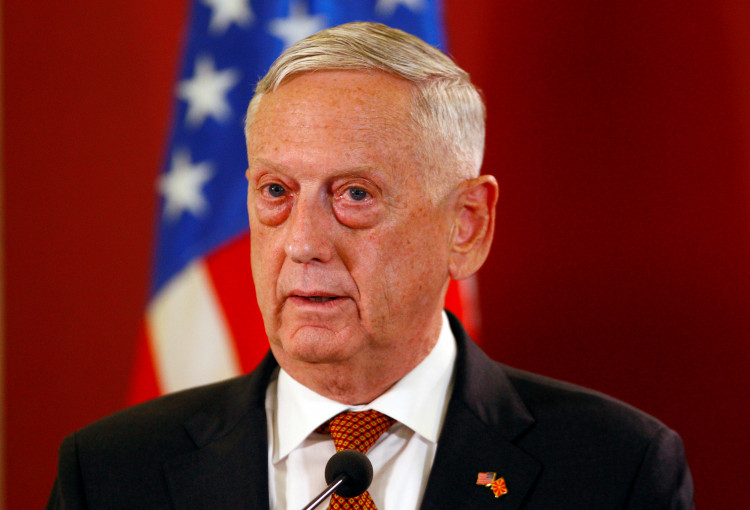Despite China's recent decision to scrap military talks with the United States, U.S. Defense Secretary Jim Mattis recently said that he is still looking for a way ahead for military ties with the rising Asian superpower. China decided to cancel military talks with the U.S. after the latter decided to slap sanctions over the former's decision to purchase various military hardware from Russia.
General Mattis visited China in June. The purpose of the visit was to improve military relations between the two global superpowers. The visit was put in place despite the backdrop of a bitter trade war between China and the United States. Moreover, several observers have already noted Washington's growing tension over China's effort to modernize its armed forces. Additionally, concerns over China's decision to strengthen its presence in the South China Sea have been a cause of some concerns in the U.S.
General Mattis has also expressed his commitment along with his colleagues towards a deeper military alliance with China. In a statement, the Defense Secretary said that he and Secretary of State Mike Pompeo are working in order to achieve this military alliance.
As a retaliation to recent sanctions levied by the United States, China's Defense Ministry have decided to recall Chinese navy chief Shen Jinlong from a planned visit to the United States. Moreover, the ministry also postponed the long-planned talks between Chinese and U.S. military officials. The talks were supposed to take place in Beijing next week.
The Chinese Defense Ministry also iterated that the country's military reserved its right to make any countermeasures in the future.
U.S. Lieutenant Colonel Dave Eastburn also confirmed that the U.S. military had been received China's order recalling its navy chief. The Chinese navy chief was supposed to meet with top U.S. naval officer Admiral John Richardson.
It was recently reported that the U.S. imposed sanctions against China after the latter's Equipment Development Department procured weapons from Rosoboronexport, a major arms exporter from Russia. The Chinese Equipment Development Department is the government's arm that handles the procurement of weapons for the country.
The sanctions levied by the U.S. relates to China's decision to purchase 2-400 surface-to-air missile system this year and 10 SU-35 combat aircraft in 2017. The sanctions were directly aimed to Russia. Political experts believe that they fall under CAATSA or the Countering America's Adversaries Through Sanctions Act which was signed into law in 2017.
The S-400 purchase includes radars, a sophisticated control system, and missiles that can reach ranges of up to 250 miles or 400 km. The missile system was first deployed by Russia in 2007. The S-400 is widely considered as the country's most effective defense against aircraft, drones, and incoming missiles.





